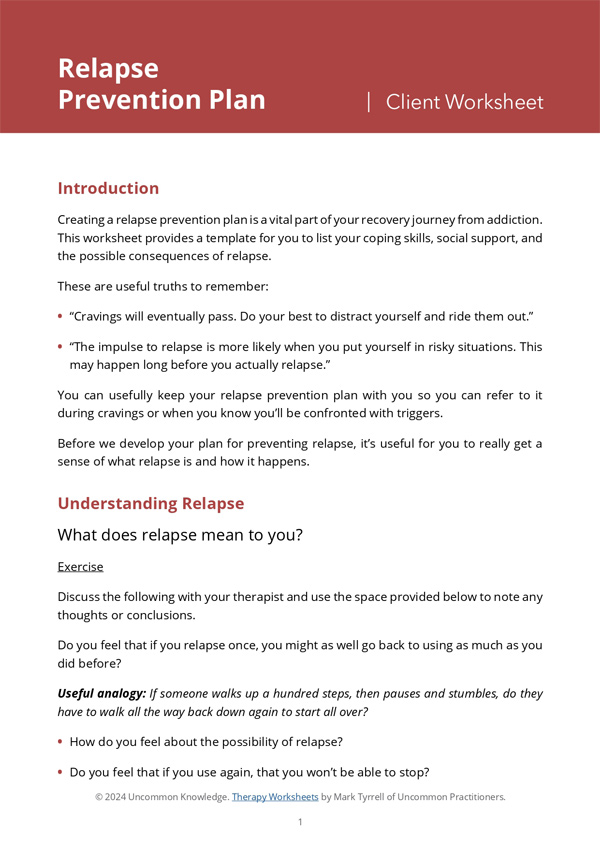Download this free therapy worksheet PDF to help your clients stay committed to their addiction recovery and manage triggers effectively
Relapse is a common challenge for individuals recovering from addiction. Even after significant progress, the temptation to return to old habits can be strong, particularly in stressful situations or when faced with familiar triggers.
Addressing the potential for relapse is crucial in addiction treatment; it prepares your client to recognize warning signs and reinforces their commitment to recovery. A relapse can undo much of the hard work your client has put into their recovery, but with the right strategies, they can stay on track and continue building a healthier life.
The Relapse Prevention Plan Worksheet provides a structured approach to help your client understand the factors that contribute to addiction relapse and develop a personalized plan to prevent it.
Help your client stay vigilant and prepared, reducing the likelihood of a relapse and supporting long-term recovery, by working through this worksheet’s questions and exercise, including:
- What are your triggers? Identify specific situations, thoughts, or feelings that increase the risk of relapse to help your client anticipate and manage these challenges.
- What are the consequences of relapse? Guide your client to reflect on the negative impacts of relapse to reinforce the importance of maintaining sobriety and strengthen resolve.
- How can you cope with cravings? Work with your client to develop healthy coping strategies and tools to manage cravings and avoid slipping back into harmful patterns.
As you and your client work through the Relapse Prevention Plan Worksheet together, you will:
- Encourage open dialogue: Foster a deeper understanding of your client’s triggers and vulnerabilities, enhancing the therapeutic relationship.
- Facilitate personalized planning: Work with your client to create a tailored relapse prevention plan that aligns with their specific needs and challenges.
- Promote proactive problem-solving: Identify potential obstacles and planning responses to address issues before they lead to relapse.
The Relapse Prevention Plan Worksheet will help your client maintain their recovery journey and provide them with a clear and actionable plan to manage their triggers and avoid relapse.
Encourage your client to keep this plan with them and review it regularly, ensuring they remain focused and committed to their recovery. Together, you can help them build a stronger foundation for a healthier, addiction-free life. An editable version of this worksheet is free to members of Uncommon Practitioners’ TV.






